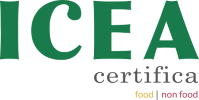INFORMATIONS
Plant production.
Organic agriculture aims to minimize external inputs, preserving the natural fertility of the soil and making the most of natural mechanisms and balances.
Single-crop plantations, hydroponic and landless crops are prohibited.
Organic farming protects biodiversity and soil fertility by resorting to extensive and extensive rotations and crop succession that always include the cultivation of legumes and green manure.
It prefers all the techniques of mechanical cultivation and favors autochthonous varieties which are naturally resistant to pests and diseases.
Intervene only in case of need with natural organic fertilizers and soil conditioners and some natural rocks, natural defense products (sulfur, copper, pyrethrum oils and plant extracts, etc.), biological control techniques (antagonist insects, sexual confusion, etc.) .)
Organic farming strictly prohibits the use of mineral fertilizers, systemic pesticides and all chemical synthesis herbicides and pesticides.
The use of GMOs is also forbidden in the production of technical means, fertilizers and pesticides used in the fields.
During the start-up phase, a two-year conversion period is required for annual or forage crops and three years for multi-year fruit crops.
The competent Authority can accept retroactive recognition of the conversion period when the application of the biological method is proven even in periods prior to notification and entry into the control system.
The following company records must be promptly updated at the company: purchase card, crop operations card and sales form. These records can also be made available through company registers and software.

